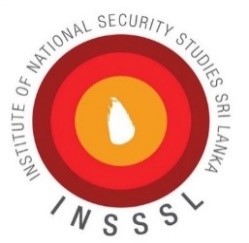“The impact of Sand Mining; a threat to National Security”
October 30, 2021
Institute of National Security Studies
Round Table Discussion on
“The impact of Sand Mining; a threat to National Security”
29th of October 2021, from 0900hrs -1100hrs (IST) via Zoom
Press Release
Institute of National Security Studies (INSS), the premier think tank on National Security established under the Ministry of Defence, Sri Lanka organized a Round Table Discussion titled, “The impact of Sand Mining; a threat to National Security'' on the 29th of October 2021, from 0900hrs to 1100hrs via Zoom. Guest Speakers for the event were Ms. Kusum Athukorala, Chair, NetWwater Sri Lanka, Ms. Muditha Priyanwada, Assistant Director (Construction Economics), Construction Industry Development Authority and Mr. Asela Fernando, Director (Regions and Environmental Impact Assessment), Geological Survey and Mines Bureau (GSMB). The proceedings were moderated by Rear Admiral Dimuthu Gunawardena, RWP**, RSP, VSV, USP, nswc, psc, Director (Communications and Publications), INSS. The audience comprised ministry officials, military officers representing Sri Lankan armed forces, Police and other officers from intelligence agencies, researchers and academics.
Rear Admiral Dimuthu Gunawardena commenced the session by introducing the topic and the guest speakers. Ms. Kusum Athukorala focused on the impact sand mining has on society and the community. Illegal sand mining causes long term implications such as the irreversible damage to ecosystems, migration with attendant social impact, the intensification of climate change, the erosion of community groups and traditional strengths and increase of social stresses that could escalate to conflicts. She provided that it is vital to study the relationship between sand mining, water security and national security.
Ms. Muditha Priyanvada commenced with a brief introduction on the Construction Industry Development Authority (CIDA), an institution established to regulate, register, formulate and standardize construction activities. Further, she underlined that there was an absence of sand deposits for future construction activities. She also shed light on different types of sand such as lava, silica, plastic that were being used as sand alternatives. She elaborated that it is necessary to enforce regulation related to the certification of offshore sand and manufactured sand, to encourage use of alternatives to river sand and to ultimately ban river sand mining.
Mr Asela Fernando commenced his presentation by highlighting the functions carried out by the GSMB in relation to regulating sand mining. Emphasizing on the issued license categories, Mr. Fernando stated the respective license has to be acquired if one is to explore, mine, trade, transport and export minerals. He elaborated on the three pillars of the mining industry; exploration, mining, and processing. By underlying the steps taken by GSMB for sustainable mining he stated that they have introduced monitoring mechanisms, hotlines and had obtained support from tri-forces.
This comprehensive dialogue provided a platform for the stakeholders to discuss the predictable repercussions of illegal and unregulated sand mining on National security; shedding light on its impact on water and Human Security. The event concluded with an interactive discussion where Guest Speakers and the moderator expressed their views and addressed questions from the audience.
